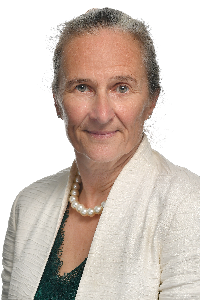Spun out to meet the need for rapid, cost-effective, on-site diagnostics
The global crisis highlighted gaps in testing capacity, underscoring the need for portable, reliable diagnostics with rapid results, independent of central labs.A collaboration between the University of Surrey, Lancaster University, and Brunel University London led to Vidiia's formation, transforming their LAMP technologies, initially developed for a BBSRC-funded poultry project in the Philippines, into a COVID-19 test. The research paper (10.3389/fmolb.2023.1144001) highlights how the pandemic drove demand for fast, affordable, and accessible diagnostics, addressing critical COVID-19 testing bottlenecks and enabling broader diagnostic applications.
Our COVID-19 test, developed in record time, achieved 98% sensitivity and 100% specificity
Earning UK government approval under the Medical Devices Coronavirus Test Device regulations. Building on this success, Vidiia supplies agile research tools that drive translational impact and collaborates with researchers to develop new assays through our Assay Accelerator program.
Our Ambition:
100 Assays Through Our Assay Accelerator by 2029
Vidiia is transforming assay development and on-site diagnostics with innovative AI technology. By 2029, we aim to accelerate 100 assays through our Assay Accelerator.Our platform leverages AI to turn academic research into impactful, cost-effective diagnostics, identifying and unlocking dormant or unknown assays.
We are committed to democratising diagnostic testing with low-cost, portable, AI-powered solutions that can be used anywhere, by anyone.Vidiia identify the need to bridge research and real-world application, enhancing efficiency and ensuring global accessibility, setting new industry standards in diagnostic innovation.
Meet The Team
A game-changing team of researchers, technology and operational experts brought together in 2020 to pursue a new breed of low cost disease diagnostics deployable anywhere in the field, by anyone.
Collaborating with leading molecular biotech universities – our purpose is to accelerate diagnostic development, enabling small scale, smart, remote disease testing using Vidiia’s AI-powered technologies.
Our range of scalable testing technologies and products are simple to use, fast, accurate and secure.

David Rimer
CEO and Cofounder

Mark Bullen
Cofounder

Ruben D. Riano Moreno
Chief Digital Innovator

Dr. Aurore Poirier
Head of Science

Jessie Carpenter
Project Manager and R&D expert

Charlie Worsley
Business Development Director

Professor Roberto La Ragione
Head of School of Biosciences and Medicine at the University of Surrey

Averil Horton
Head of Business Development & Innovation at Brunel University London

Professor Wamadeva Balachandran
Research Professor at Brunel University London

Vincent The
Non-Executive Director
Vision
Accesible , Portable, AI-Driven Testing
Mission
Testing by anyone, anywhere, anytime

